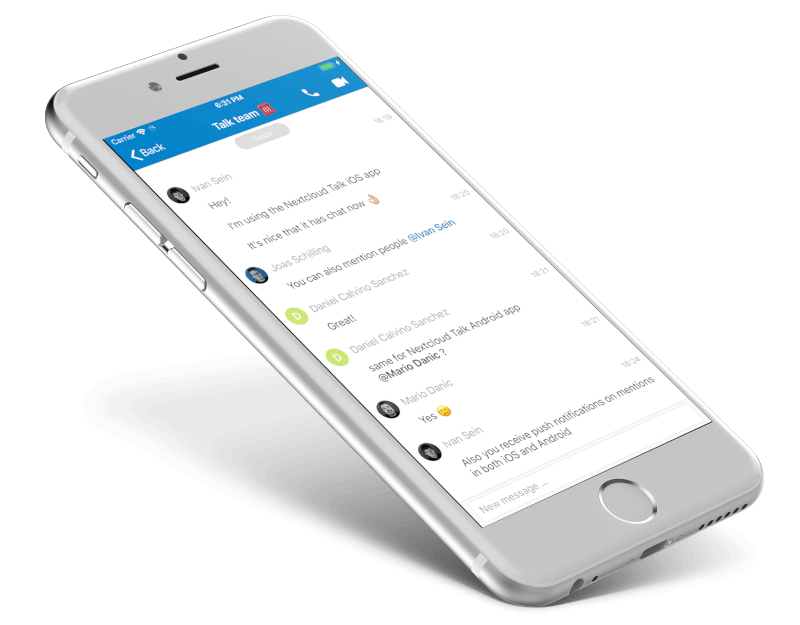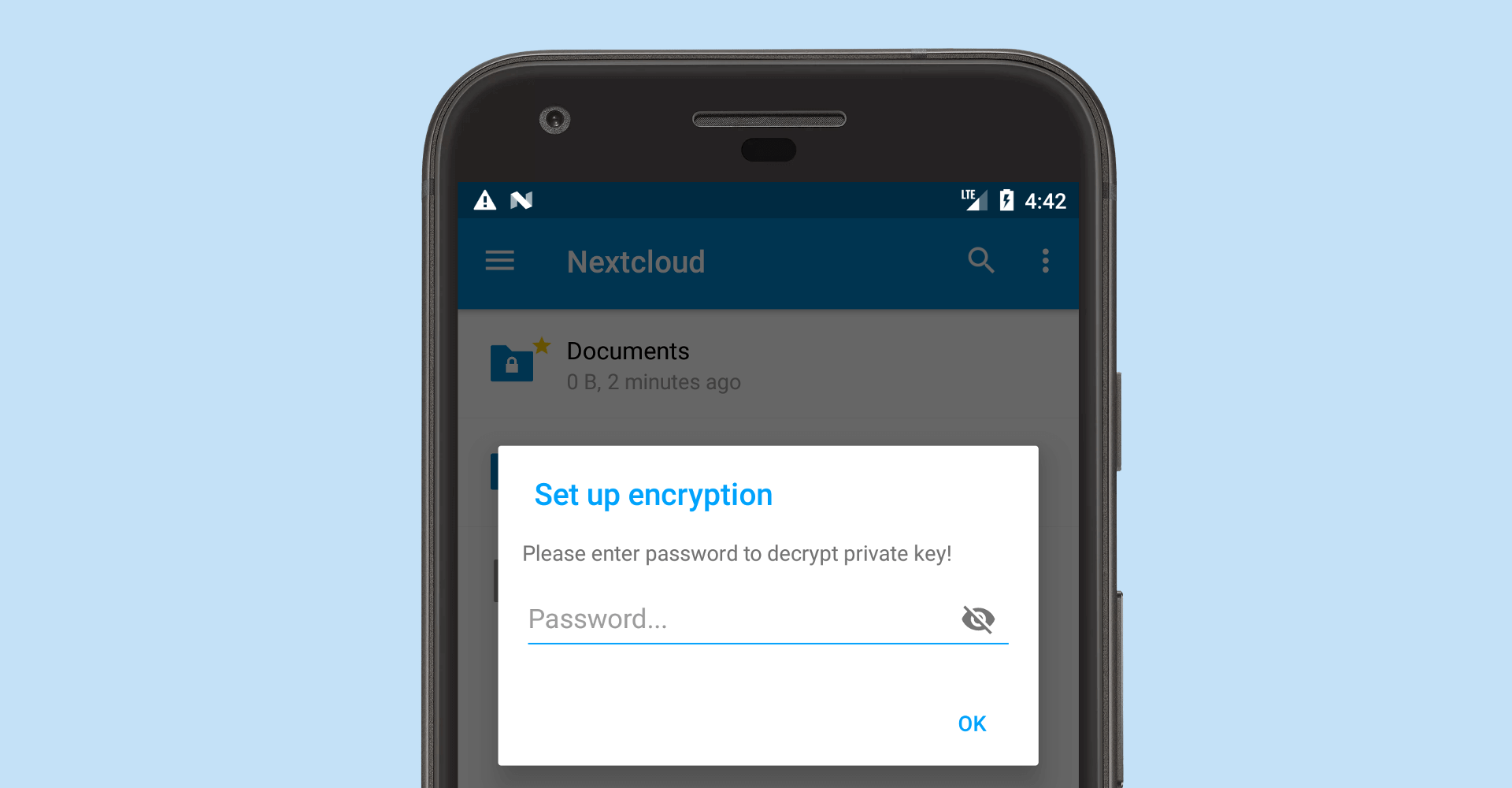Enterprise file sync and share
What is EFSS and what to look for when choosing one
An Enterprise File Sync and Share is a piece of software that gives users access to documents, photos and videos on any of their devices. It also allows them to easily share these documents with others.
The most common reason for deploying an EFSS is to prevent employees from using consumer-based file sharing apps to store, access and manage corporate data outside the IT departments’ control and visibility.
Key features
EFSS applications generally offer the following abilities:
- Sync files from corporate storage to user desktops and mobile devices so users can work wherever they are
- Let users share links to files and folders within and outside the organization to simplify collaboration
- Integrate in existing user management and enterprise applications so IT can manage access and permissions to data
- Protect data with anti-virus, encryption and Data Loss Prevention and provide auditing and reporting on activity around files
- Most EFSS solutions are cloud based. There are some hybrid or on-premises alternatives.
Differentiators
What is the best EFSS solution? The most important factors enterprises look for are these.
Security
EFSS software is entrusted with highly valued and sensitive data. The loss of company secrets due to theft, the risk of leakage of private customer data or the productivity hit of a ransomware attack is huge and thus EFSS vendors offer a range of cutting-edge security capabilities.
Look for these when picking a secure solution:
-
Multiple layers of encryption for in-transit, on-disk and client-side protection
-
Active security measures like advanced two-factor authentication and ransomware protection
-
Technological hardenings like brute force detection and browser-security like CSP and SCC
-
A well-ran security bug bounty program (example) proportionate to the value of data you store
-
Unique features showing a vendor takes security serious, like machine learning based protection or novel file sharing protections
Risks
Office 365 not GDPR compliant
Use of Office 365 adds significantly to compliance risks. Like many other SaaS solutions, it, fails to follow the requirements and risk business data as a Data Protection Impact Assesment of Office 365 by the Dutch government showed again in mid 2020. This after serious flaws were found and promised to be fixed first in early 2019 and again later that year. Legal challenges are mounted continuously and can cause significant harm.
Links:
Compare the most popular cloud-based EFSS, Microsoft OneDrive, with the most popular on-premises solution, Nextcloud.
Compare OneDrive and NextcloudSaaS in public clouds is a risky solution! A McAfee survey showed that 25% of organizations using public cloud suffered data theft.
Learn about the risks of public SaaS cloudsOn-premises Nextcloud
Fast deployment: secure your data now
Nextcloud is famously easy to deploy and easy to use, a key reason behind its market leadership.
Contact usFuture-ready: built in collaboration
Gartner typically calls solutions in this space Enterprise File Sync and Share or EFSS. In the last years, the market has been moving on to providing a next generation EFSS, called Content Collaboration Platform, integrating online document editing, communication and planning capabilities complementing the file exchange technologies.
Nextcloud is a leading vendor in this new space, offering these capabilities with Nextcloud Groupware and Nextcloud Talk, delivering seamless communication features integrated in Files. Users can attach a note to shares, comment on files, open a chat or even start a call directly, connecting files to these conversations to keep track of it all. Integrated email and calendaring connect projects and teams to the files they work with, and with Deck, Nextcloud provides a kanban board app which works together with all those.
All these functions are available on-the-go and work across organizational boundaries, allowing users to self-manage thanks to built in support for creating guest accounts by users as well as public sharing links that require no login but can be protected by a password.
Your advantages
No new data silos
Modern organizations have data in a wide variety of silos like Sharepoint, Windows Network Drives, FTP sites and (often without knowledge of management) Dropbox or Google Drive. Nextcloud acts as a single file access, sync and share layer across all these storage systems, integrating with enterprise native account handling like LDAP or SAML.
That does not exclude using public cloud, nor requires you to give up on data locality. Nextcloud fits perfectly in a hybrid cloud strategy, enabling access to data on Amazon S3 and other public storage technologies. Even cutting-edge Blockchain storage technologies like Storj.io and Sia.tech are available to augment storage at extremely low cost. Moreover, using trusted, local providers like IONOS or hosting.de means you can trust data stays under a jurisdiction that protects your business secrets.
Under IT’s control
No matter the storage solution used, Nextcloud can ensure corporate policies are followed. Sharing can be restricted through the file firewall, filtering on user properties like location or group, or file properties like (automatically or manually) assigned tags, file type and more. With storage transparent to users, generic data can remain where it is while IT can make sure that business critical or compliance-relevant information is stored on internal infrastructure and does not leave the company. Use our secure File Drop to let customers upload files to you in a easy and secure way!
With uniquely layered encryption
Nextcloud offers a supremely easy to use, well integrated file sync and share solution with an uniquely layered approach to security. Together with the support for nearly any storage technology, it features server-side encryption and offers the ability to employ end-to-end, client side encryption for a subset of user files. Rather than making it an either-or choice, your business can rely on utmost security where it is needed but keep collaborative online document editing and full-text search on the server over the rest of the stored data.
At global scale and ensuring data locality
Our unique Global Scale technology enables multiple Nextcloud instances to work as one, enabling enterprises to maintain multiple locations. Local regulations to ensure data locality can be satisfied without user impact and scaling to millions of users can be done cost-effectively.
Designed for the real world
Users can access data on a FTP drive shared with another company; while data stored on an external object storage could be encrypted using server-side encryption so the storage provider has no way to compromise their security.
Meanwhile, files from the HR department are always enforced to be end-to-end encrypted on their clients, protecting their files from even the worst case of a full server breach.
In the back-end, IT can use a mix of local NFS or SharePoint storage, public S3 compatible storage and even blockchain technology to find the perfect mix between performance, reliability, security and cost.
The layered approach to security makes sure users have the maximum amount of productivity in their web interface while making sure sensitive data receives the ultimate protection, client-to-client. Keeping it all in a single solution simplifies management and avoids mistakes from users or IT departments that might cause costly data leaks



